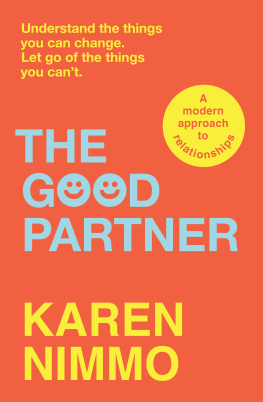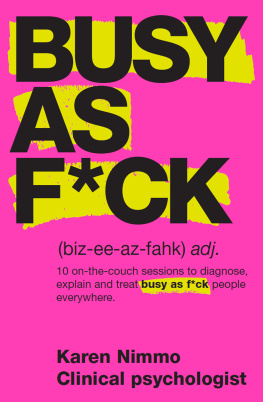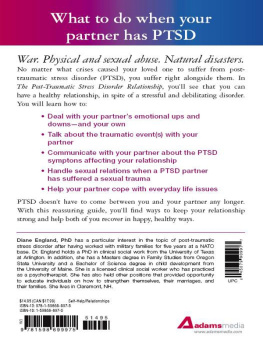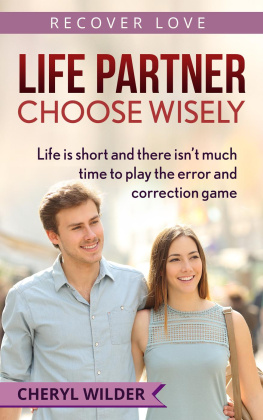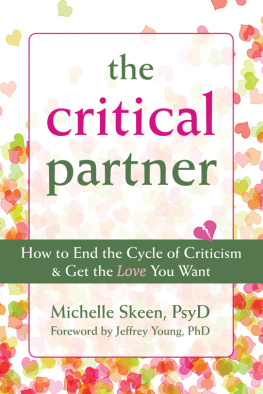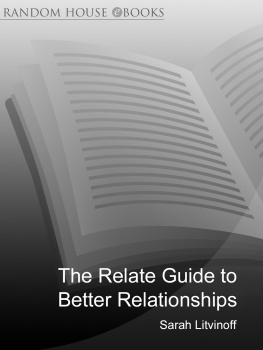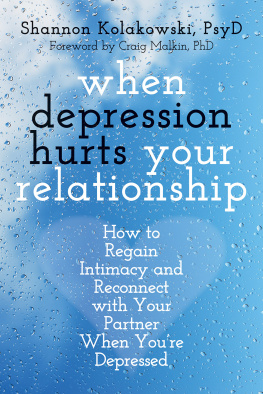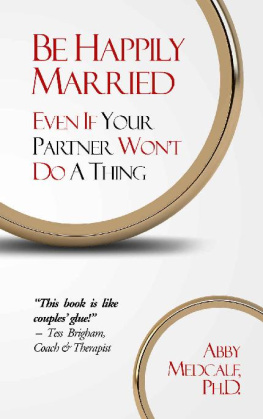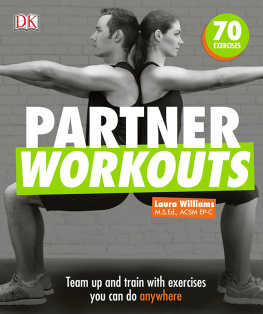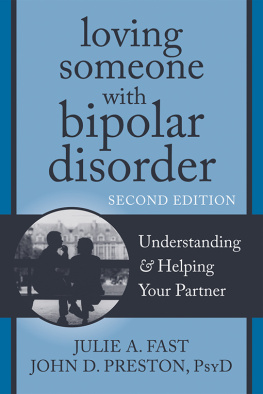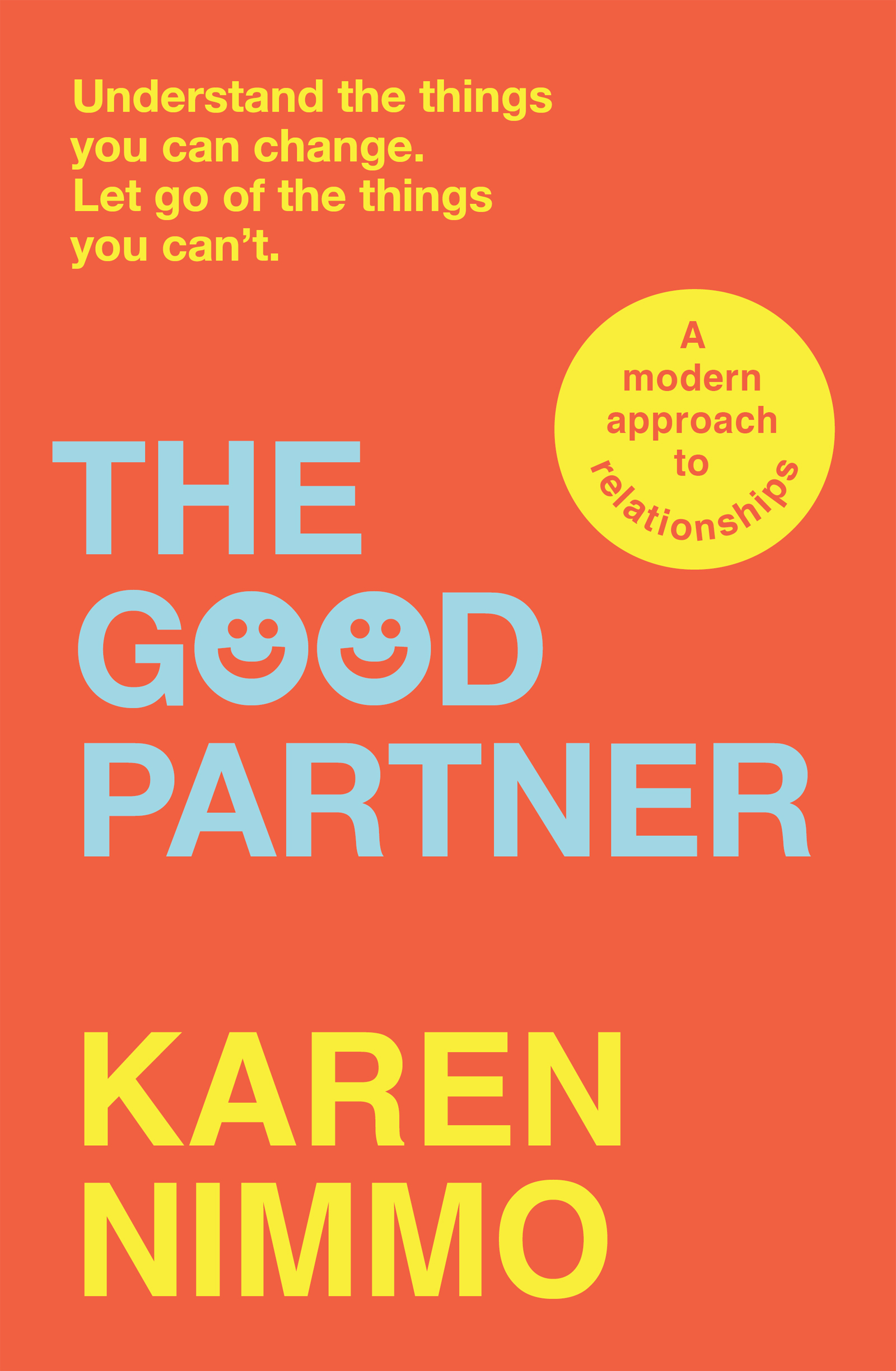Contents
A woman Ive just met tells me shes blissfully in love. Then she bursts into tears.
Freya, whos in her mid-30s, has booked into therapy to talk about her relationship with Quinn. Theyve been together for a year. He wants her to move in with him, but shes hesitant about making The Big Commitment. What if it doesnt work out? What if hes not the guy for me? What if I waste more time on the wrong one?
I wait, expecting a roll call of his negative traits that hes emotionally shut-down, a heavy drinker, a gaslighter, ogles other women, doesnt pick up his dirty socks but she heads in the opposite direction.
Hes perfect, she says, twisting aggressively at the friendship ring hes given her. Hes easily the best partner Ive ever had. Hes kind, caring, smart, funny... we have such a great time together.
She shuffles in her seat. I know theres a But coming. But, she says, on cue. I cant get my head around this whole commitment thing. Will it be the same deal, night after night, forever? Sex, then dishes.
I cant help myself. I lean in conspiratorially. I watch her curious expression. Youve got it, I say, apart from one thing. I pause, a therapists tool for creating suspense. There are a lot more dishes than sex. Actually, what Im really thinking is, theres a lot more everything than sex, but I keep that to myself.
Freya swipes a tissue from the box, dabs her eyes and grins. Do you think we need to come in for a session together before we do this?
Youre here now, I say. Why dont we begin with you?
***
Like Freya, people often raise their relationship problems in individual sessions, when theyre on their own. Its like they grab the chance to speak freely and test the relationship waters without upsetting, worrying or getting into a fight with their partner, as often happens in couples therapy.
Its a good idea. Not because couples therapy or counselling doesnt work it can and does but because theres another way to improve your relationships. And that is to analyse yourself. To delve into who you are as a person and why you roll the way you do, and focus on what you bring to the kitchen table, rather than what your partner is (or isnt) bringing. After all, you are the only person you can ever hope to fully understand. And youre certainly the only one you can be sure of changing.
Without question, our relationships test us. Show me a couple who floats through life without niggles, struggles and a slammed door or two sometimes a whole lot more and Ill have seen a miracle. Either that, or theyre lying. But being equipped to create and maintain good relationships matters, because theyre such key contributors to our wellbeing and, when they dont go well, our misery. This matters now more than ever, in a world where divorce and separation rates are climbing, families are more diverse, and were all struggling with the pressures and uncertainty of 21st-century life.
The good news is great relationships are made, not born. True, some relationships are not built to last and some people not built to stay in them but its worth learning skills to help you play the game as well as you can.
The tougher news is that love is hard to pin down. Theres no blueprint for the complexity of intimate human connection. But, as Ive talked about love and relationships with hundreds of people over the years, seven core themes have emerged, which are central to all relationships. I call them The Seven Pillars of Love: Trust. Communication. Conflict skills. Intimacy. Load-sharing. Play. Kindness. These pillars dont stand in isolation. Theres a significant overlap between them but, together, they form the foundation of a healthy, loving relationship and offer guidance as to being a good partner within one.
These pillars are underpinned by the therapeutic models I use in my work. All therapists have their favourite models or methods of working but were united in saying that whatever we use should work in our clients best interests. My approach is fluid: I like to draw threads from all sorts of places to match the needs and personalities of my clients. Having said that, Id like to acknowledge four key influences in my work, and this book.
Cognitive behavioural therapy (CBT) This helps you to identify, challenge and change unhelpful thoughts, beliefs, behaviours and situations. Its a brief, action-oriented, problem-solving model, which can be used broadly as well as for diagnosed mental health issues.
Acceptance and commitment therapy (ACT) A values-based therapy that combines self-acceptance with mindfulness skills. ACT is about being present with lifes challenges (and difficult feelings), and moving towards behaviour that aligns with your values.
Positive psychology This branch of psychology is concerned with happiness and wellbeing. Its not about positivity at the expense of processing honest feelings. Instead, it encourages reflection on the factors that most contribute to a well-lived and fulfilling life.
Meaning therapy The roots of this therapy are in psychiatrist and Holocaust survivor Viktor Frankls Logotherapy. It focuses on finding meaning in life; the human capacity to make life worth living, in spite of challenges, suffering and limitations.
***
This book is a do-it-yourself guide for anyone who wants to do better in love in the relationships youre already in or those you aspire to have. Its not about bringing out the toolkit and trying to fix yourself. Nor is it about pointing the finger at your partner. This book is about figuring out who you are or become in relationships, understanding your vulnerabilities, triggers, reactions and behaviours. Its about equipping yourself with tools to help you cope with challenges and iron out your difficulties, as you work towards being content and at ease in your relationships, your own unique version of a good partner.
Ive drawn heavily on my work with people of all ages and relationship stages when researching this book. While theory and research must underpin therapeutic work, we can learn so much from the experiences of others, from their stories, through looking at the world through their lens. Ive done some of my best learning from the couch, because people are endlessly surprising. Just when you think youve heard it all, youll hear a story that sends you skidding back into the rookie zone and hot-dialling a supervisor or colleague for help.
The examples Ive used are true but, in the interests of ethics and confidentiality, Ive taken care to omit and/or disguise all identifying details. This means some of the people who appear in this book are a compilation of traits. So, if you think you recognise yourself or anyone you know please dismiss it as a remarkable coincidence.
Finally, relationship advice has traditionally focused on exclusive partnerships between two people. While this is what youll find in my examples, its important to note that modern relationships are diverse. They require an approach that is inclusive and accepting of peoples differing values, cultures, orientations, needs, beliefs and desires. In other words, there are no fixed rules, as long as its legal and consensual (every time).
The Good Partner is built on the premise that the better you understand yourself, the better youll relate to another person. It requires some soul-searching and some honest self-diagnosis. So if youre in a relationship, dont let your partner read this book over your shoulder. Your flaws are your business theres no need to rush to share them!
On that note, lets begin with a test to gauge your status as a partner.

